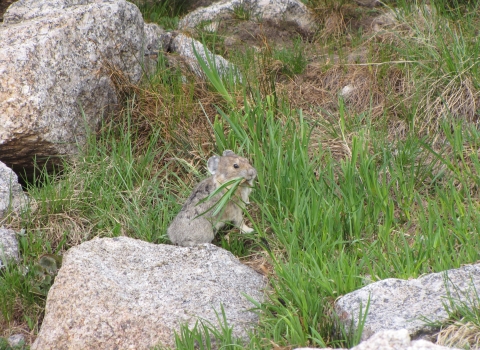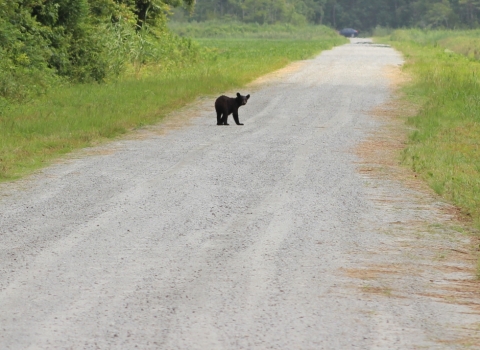The U.S. Fish and Wildlife Service has announced reopening of the comment period for the proposed designation of critical habitat for 11 endangered or threatened freshwater mussels in the Mobile River Basin. The 11 mussel species with proposed critical habitat are the threatened and , , , and Endangered Species Act requires the Service to consider potential economic impacts of a critical habitat designation when determining whether or not to designate critical habitat. If the benefits of excluding an area outweigh the benefits of including it, the Service may exclude an area from critical habitat, unless the exclusion would result in the extinction of the species.
Critical habitat refers to specific geographic areas that are essential for the conservation of a threatened or endangered species and that may require special management and protection. A critical habitat designation does not establish a preserve or refuge nor does it affect individual citizens, organizations, states, local governments, or other non-federal entities that do not require federal permits or funding.
Proposed critical habitat for the 11 mussels encompasses about 1,100 miles of river and stream channels in the following areas:
- Tombigbee River drainage in Itawamba, Monroe and Lowndes counties in Mississippi and Lamar, Pickens, Greene, Sumter and Tuscaloosa Counties in Alabama;
- Black Warrior River drainage in Tuscaloosa, Fayette, Winston, Lawrence, Blount and Jefferson Counties in Alabama;
- Alabama River drainage in Dallas, Lowndes, and Autauga Counties in Alabama;
- Cahaba River drainage in Bibb, Jefferson and Shelby Counties in Alabama;
- Tallapoosa River drainage in Lee, Macon and Cleburne Counties in Alabama plus Haralson and Paulding counties in Georgia;
- Coosa River drainage in Coosa, Clay, Elmore, Shelby, Talladega, Calhoun, Cherokee, St. Clair and Cleburne Counties in Alabama and Murray, Whitfield, Gordon and Floyd counties in Georgia plus Bradley and Polk Counties in Tennessee.
Copies of the proposed designation of critical habitat for the 11 mussels or the associated draft economic analysis of critical habitat designation can be obtained by visiting our website: http://southeast.fws.gov/hotissues/ or by contacting U.S. Fish and Wildlife Service, 6578 Dogwood View Parkway, Suite A, Jackson, MS 39213; phone 601-965-4900.
The Service will consider comments and information on the critical habitat proposal and draft economic analysis received by January 23, 2004. Written comments and information should be mailed, faxed, or delivered in person to U.S. Fish and Wildlife Service, Attn: Paul Hartfield, 6578 Dogwood View Parkway, Suite A, Jackson, MS 39213; Fax: 601-965-4043, or sent by electronic mail to paul_hartfield@fws.gov . Comments previously submitted need not be resubmitted and will be fully considered in the final determination of the proposal.
The U.S. Fish and Wildlife Service is the principal federal agency responsible for conserving, protecting and enhancing fish, wildlife and plants and their habitats for the continuing benefit of the American people. The Service manages the 95-million-acre National Wildlife Refuge System, which encompasses 542 national wildlife refuges, thousands of small wetlands and other special management areas. It also operates 69 national fish hatcheries, 64 fishery resource offices and 81 ecological services field stations. The agency enforces federal wildlife laws, administers the Endangered Species Act, manages migratory bird populations, restores nationally significant fisheries, conserves and restores wildlife habitat such as wetlands, and helps foreign governments with their conservation efforts. It also oversees the Federal Aid program that distributes hundreds of millions of dollars in excise taxes on fishing and hunting equipment to state fish and wildlife agencies. Visit the Service


